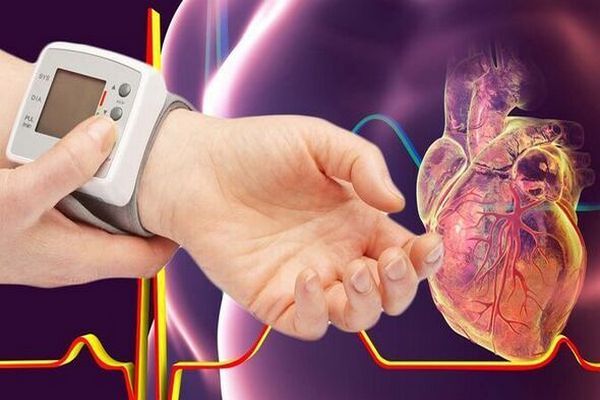Different Types of Blood Pressure
Blood Pressure Definition:
Blood pressure is defined as the lateral pressure exerted by the column of blood on the wall of the arteries while blood flows through it. Normally, Blood Pressure refers to arterial blood pressure.
Blood pressure is usually expressed with the systolic pressure written above the diastolic pressure as follows-
Blood pressure (BP) = 120/80mmHg (Systole/Diastole).

There are various types of blood pressure which are listed below:
- Systolic blood pressure,
- Diastolic blood pressure,
- Pulse pressure,
- Mean arterial blood pressure.
All the above blood pressure types have discussed in the following:
It is the maximum pressure by the blood on the arterial wall during the systole of the heart.
Normal systolic pressure: 120mmHg (Range: 110-140mmHg).
It is the minimum pressure exerted on the arterial wall during the diastole of the heart.
Normal diastolic pressure: 80mmHg (Range: 60-80mmHg).
3. Pulse Pressure:
It is the difference between systolic pressure and diastolic pressure.
Normal pulse pressure: 40mmHg (Range: 30-40mmHg).
This type of blood pressure is the average pressure existing in the arteries. Mean arterial blood pressure is the diastolic pressure plus one-third of pulse pressure.
Normal mean pressure: 93mmHg (80+13=93)
Hormones Involved in Regulation of Blood Pressure:
Those hormones which regulate blood pressure have listed in the following:
It includes-
- Noradrenaline,
- Vasopressin (ADH),
- Serotonin
- Adrenaline,
- Angiotensin,
- Aldosterone,
- Thyroxin.
It includes-
- A vasoactive intestinal polypeptide (VIP),
- Bradykinin,
- Prostaglandin,
- Histamine,
- Acetylcholine,
- The atrial natriuretic peptide,
- Brain natriuretic peptide,
- C-type natriuretic peptide.
There are some key importance’s of blood pressure which are pointed out in the below:
- Blood pressure is essential for the flow of blood through blood vessels.
- This type of blood pressure provides the motive force for filtration at the capillary bed which is necessary for-
- Tissue nutrition,
- Formation of lymph,
- Formation of urine,
- Venous return.
- What is meant by blood pressure?
- What is the definition of blood pressure?
- What is normal blood pressure?
- Define the term “Blood Pressure”.
- Mention the names of hormones that regulate blood pressure.
- Name the different types of blood pressure with their normal values.
- What are the types of blood pressure?
- Mention the classification of blood pressure.

Maria Khatun Mona is a Founder and Editor of Nursing Exercise Blog. She is a Nursing and Midwifery Expert. Currently she is working as a Registered Nurse at Evercare Hospital, Dhaka, Bangladesh. She has great passion in writing different articles on Nursing and Midwifery. Mail her at “maria.mona023@gmail.com”
